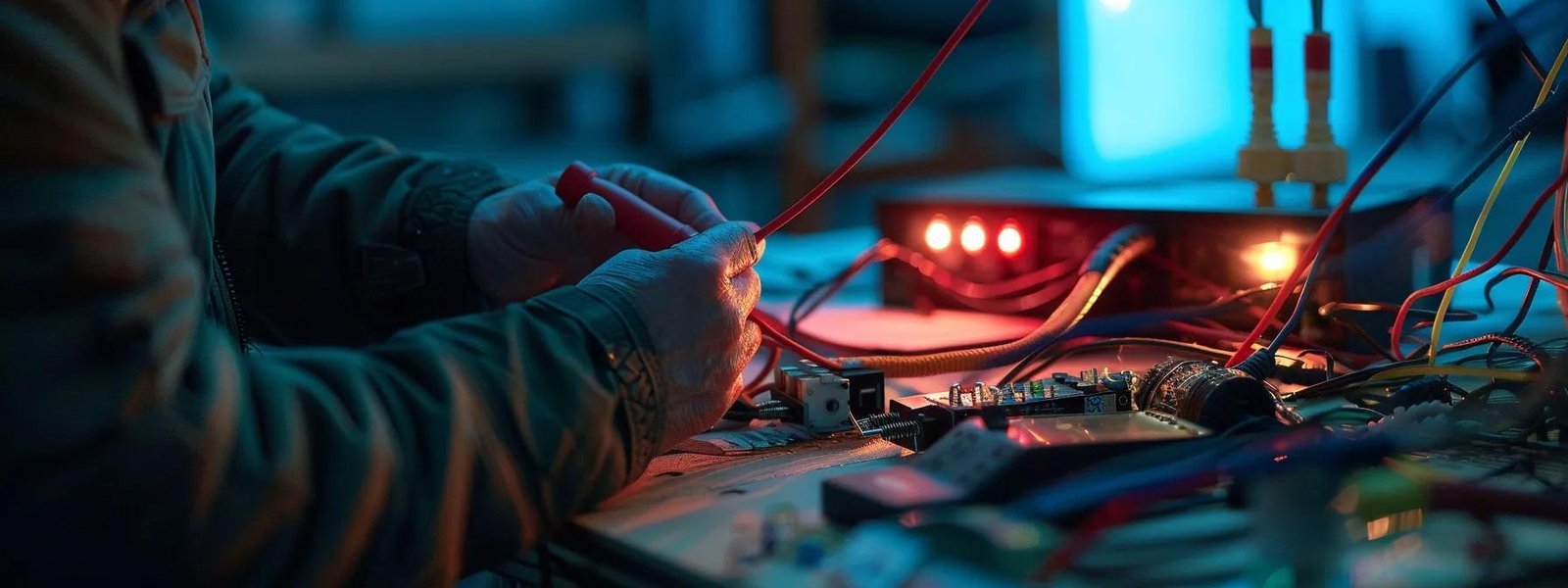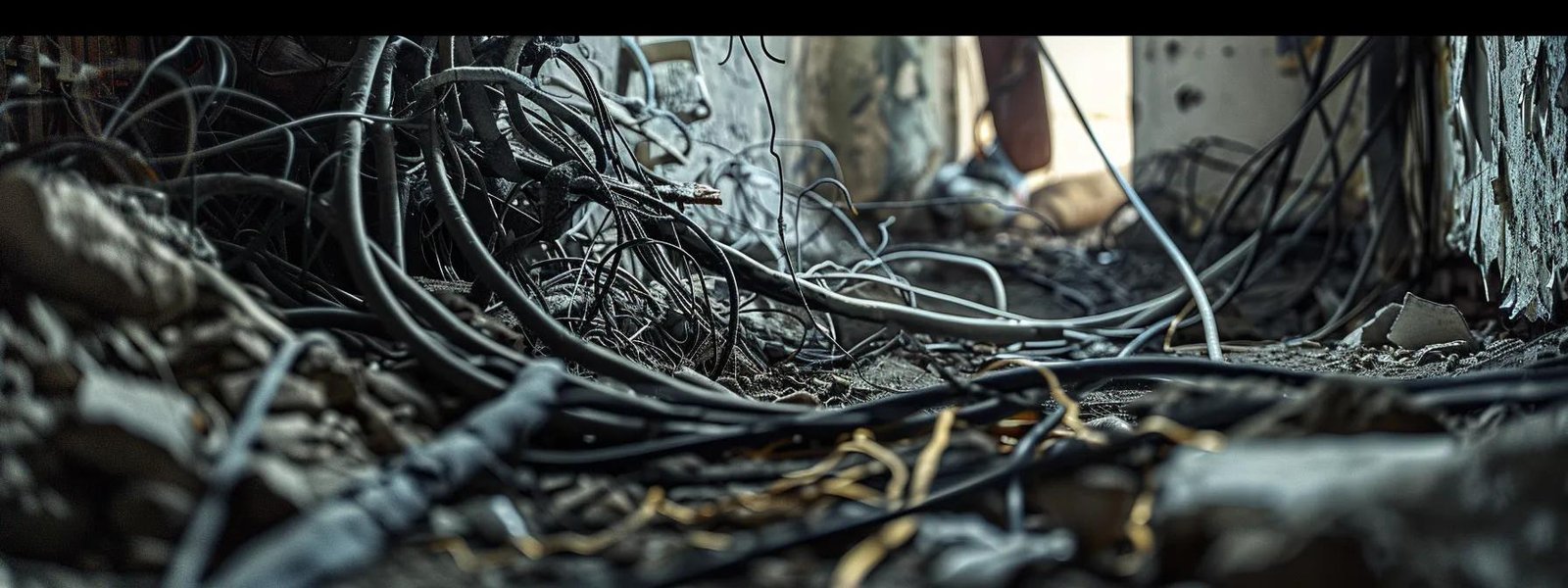
Is your home experiencing strange electrical issues? Grounding problems can lead to serious safety risks, including electrical shocks and equipment damage. This article will help homeowners identify key signs of grounding issues, such as ground loops and faulty electrical wiring. Readers will learn how to test for grounding problems safely and understand when to seek help from a professional electrician. By addressing these concerns, homeowners can protect their property and ensure their electrical systems function properly, ultimately enhancing safety and efficiency in their living spaces.

Electrical grounding and electrical diagnostics play a crucial role in ensuring safety and efficiency in a home. It helps prevent energy surges that can lead to short circuits, protecting both the home and its appliances. Inadequate grounding poses safety risks, including electrical shocks and fire hazards. Additionally, proper grounding minimizes noise interference, which is especially important for sensitive equipment like electric guitars. Understanding these aspects is vital for homeowners to maintain a safe living environment.
Electrical grounding serves as a safety mechanism that directs electric current away from the home and its occupants. By providing a path for excess electricity to flow into the ground, it reduces the risk of electrical shocks and fire hazards. Additionally, proper grounding can help eliminate “the hum” often associated with electrical interference, ensuring that sensitive devices, such as audio equipment, operate smoothly without disruption.
Inadequate grounding can lead to significant safety risks in a home. Without proper grounding, electrical systems may become unstable, increasing the chances of electrical shocks and fire hazards. For instance, if a lightning strike occurs, a home without adequate grounding may suffer severe damage to its wiring and equipment, leading to costly repairs and potential safety threats.
Proper grounding is essential for protecting appliances in a home by ensuring a stable power supply. When appliances are grounded correctly, excess electricity can safely flow into the ground, preventing potential hazards such as electrical shocks or damage from power surges. For instance, if a metal screw becomes loose in an appliance, proper grounding can help redirect any stray current, safeguarding both the appliance and the homeowner during a home inspection.

Homeowners should be aware of several key signs that indicate potential grounding issues. Experiencing electric shocks from appliances, flickering or dimming lights without apparent cause, and frequent tripping of circuit breakers are all reasons to investigate further. Additionally, discolored or warm electrical outlets and unusual sounds coming from electrical panels, such as a mains hum, may signal underlying problems that require attention.
Experiencing electric shocks from appliances is a clear indication of potential grounding issues in a home. When appliances, such as a ceiling fan or kitchen equipment, deliver unexpected shocks, it often points to improper grounding or a malfunctioning circuit breaker. Homeowners should take these signs seriously, as they can lead to more significant electrical hazards if not addressed promptly.
Flickering or dimming lights without an apparent cause can indicate grounding issues in a home. This problem may arise from electrical surges or inadequate grounding, which can affect the performance of electronics and lighting systems. For instance, if a lightning strike occurs, it can create fluctuations in the electrical supply, leading to unstable lighting. Homeowners should consider having a professional electrician inspect their copper grounding system to ensure it is functioning properly and to prevent potential hazards.
Frequent tripping of circuit breakers can signal grounding issues in a home, often linked to voltage fluctuations caused by improper connections. For example, if an amplifier or light switch is connected to a circuit that is not adequately grounded, it may lead to overloads that trip the breaker. Homeowners should also check areas like the basement, where pipes may interfere with electrical systems, to ensure that grounding is effective and that safety is maintained throughout the home.
Discolored or warm electrical outlets can indicate serious grounding issues in a home. When outlets show signs of discoloration, such as a yellow or brown tint, it often suggests overheating, which can be caused by a ground loop or faulty connections in the power cable. Homeowners should pay attention to these signs, as they may point to excessive current flow, potentially measured in amps, that can damage appliances, including air conditioning units, and create safety hazards.
Unusual sounds coming from electrical panels can indicate grounding issues that require immediate attention. Homeowners may notice buzzing, crackling, or popping noises, which can be signs of static electricity buildup or faulty connections. These sounds often arise when appliances connected through extension cords or power strips are overloaded, leading to potential hazards that compromise safety and efficiency.

Testing for grounding problems safely involves several key steps. First, using a circuit tester can help identify voltage issues and ensure proper grounding. Next, inspecting ground wires for damage or corrosion is essential to maintain a safe electrical system. Lastly, checking for loose or missing ground connections can prevent potential hazards. Each of these methods provides practical insights into maintaining a secure and efficient home electrical system.
Using a circuit tester is an effective way to identify grounding issues in a home. This tool allows homeowners to check for proper voltage levels and ensure that the grounding system is functioning correctly. By following the manufacturer’s instructions, individuals can safely test outlets and circuits, helping to pinpoint any irregularities that may indicate grounding problems, ultimately leading to a safer living environment.
Inspecting ground wires for damage or corrosion is a critical step in identifying grounding issues in a home. Homeowners should regularly check these wires for any signs of wear, such as fraying or discoloration, which can indicate potential hazards. If corrosion is present, it can disrupt the grounding system’s effectiveness, leading to increased risks of electrical shocks or equipment damage. Taking proactive measures to inspect and maintain ground wires ensures a safer electrical environment and protects valuable appliances.
Checking for loose or missing ground connections is essential for maintaining a safe electrical system in a home. Homeowners should inspect outlets and junction boxes to ensure that all ground wires are securely attached. If any connections appear loose or absent, it is crucial to address these issues promptly, as they can lead to increased risks of electrical shocks and equipment damage.

Grounding issues in homes can arise from several factors. Outdated or worn-out wiring systems may fail to provide adequate grounding, leading to safety risks. Improper DIY electrical modifications can create unstable connections, further complicating the grounding system. Additionally, damage from rodents or pests can disrupt wiring integrity, increasing the likelihood of grounding problems. Understanding these causes is essential for homeowners to maintain a safe electrical environment.
Outdated or worn-out wiring systems are a common cause of grounding issues in homes. Over time, electrical wiring can deteriorate, leading to inadequate grounding that increases the risk of electrical shocks and fire hazards. Homeowners should be vigilant about the age and condition of their wiring, as older systems may not meet current safety standards, making it essential to consider upgrades or replacements to ensure a safe living environment:
Improper DIY electrical modifications can significantly contribute to grounding issues in homes. Homeowners who attempt electrical work without adequate knowledge may create unstable connections, leading to inadequate grounding and increased safety risks. For example, if a homeowner adds new outlets or modifies existing wiring without following proper guidelines, it can result in faulty grounding that exposes the home to electrical shocks and fire hazards:
Damage from rodents or pests can significantly compromise the grounding system in a home. These animals often chew through electrical wires, leading to exposed connections that can disrupt proper grounding. Homeowners should regularly inspect their wiring for signs of rodent activity, as addressing these issues promptly can prevent serious electrical hazards and ensure a safe living environment.

To prevent grounding problems in a home, homeowners should prioritize scheduling regular electrical inspections, updating older electrical components, and ensuring professional installation of new appliances. Regular inspections help identify potential issues early, while updating outdated systems enhances safety. Professional installation guarantees that new appliances are correctly grounded, reducing the risk of electrical hazards. These steps are essential for maintaining a safe electrical environment.
Scheduling regular electrical inspections is a proactive measure that homeowners can take to identify and address potential grounding issues before they escalate. These inspections allow a qualified electrician to assess the condition of the electrical system, ensuring that grounding is adequate and compliant with safety standards. By prioritizing these inspections, homeowners can protect their property from electrical hazards and maintain a safe living environment.
Updating older electrical components is essential for maintaining a safe and efficient electrical system in a home. Outdated wiring and fixtures may not provide adequate grounding, increasing the risk of electrical shocks and fire hazards. Homeowners should consider replacing old circuit breakers, outlets, and wiring with modern, code-compliant options to enhance safety and ensure reliable performance.
Ensuring professional installation of new appliances is vital for maintaining a safe electrical system in a home. When appliances are installed by qualified electricians, they are properly grounded, which reduces the risk of electrical shocks and fire hazards. Homeowners should prioritize hiring experienced professionals to handle installations, as this not only guarantees compliance with safety standards but also protects valuable equipment from potential damage caused by improper connections.

Homeowners should recognize situations that require immediate expert attention, such as persistent electrical shocks or frequent circuit breaker trips. Choosing a qualified electrical specialist is essential for ensuring safety and compliance. Additionally, preparing for an electrical inspection can help streamline the process. Each of these topics will provide practical insights to help homeowners address grounding issues effectively.
Homeowners should seek immediate help from a professional electrician when they experience persistent electrical shocks or frequent tripping of circuit breakers. These issues often indicate serious grounding problems that can pose significant safety risks. For example, if appliances consistently deliver shocks or if circuit breakers trip without clear reasons, it is essential to address these concerns promptly to prevent potential hazards.
Choosing a qualified electrical specialist is essential for addressing grounding issues effectively. Homeowners should look for licensed electricians with experience in residential electrical systems, particularly those who understand grounding requirements. Checking online reviews and asking for referrals can help identify reputable professionals who prioritize safety and compliance, ensuring that any grounding problems are resolved efficiently and effectively.
Preparing for an electrical inspection is essential for homeowners who suspect grounding issues. Before the inspection, it is advisable to document any signs of electrical problems, such as flickering lights or frequent circuit breaker trips, to provide the electrician with a clear understanding of the situation. This preparation not only helps the electrician diagnose the issue more effectively but also ensures that the inspection process is efficient and thorough.
Identifying grounding issues in a home is essential for ensuring safety and preventing electrical hazards. Homeowners should be vigilant for signs such as electric shocks, flickering lights, and discolored outlets, as these can indicate serious problems. Regular inspections and prompt action can protect both the home and its appliances from potential damage. By prioritizing grounding maintenance, homeowners can create a safer living environment and enhance the efficiency of their electrical systems.


